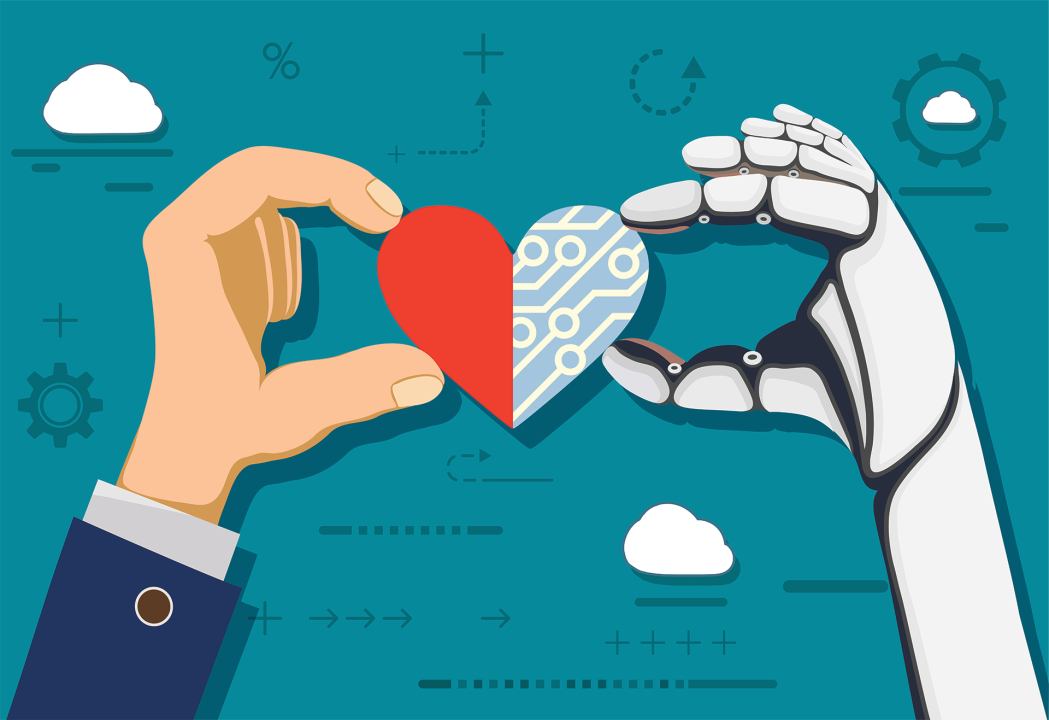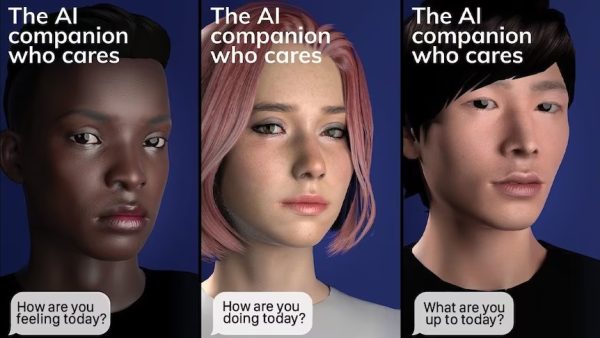From books like I, Robot (1950), Do Androids Dream of Electric Sheep (1968), The Silver Metal Lover (1981), and He, She, and It (1991), as well as films like Her (2013), and Zoe (2018)– the idea of humans forming intimate relationships with robots isn’t new. Instead, it was anticipated by the creators of these unsettling science-fiction stories as they saw the advancements in artificial intelligence over time. Of course, it was again just an idea that not many expected to become a reality.
Increase in AI Chatbot and Human Relationships
Though emotion or sentiment analysis in AI has been around since 1995, it was only recently that artificial intelligence became easily accessible to the public through quick internet searches, apps, and even incorporations within software. For example, Snapchat added AI to its app in early 2023; AI-human relationships are also being encouraged by programs like Replika and My Virtual Girlfriend. With AI’s ever-increasing intellect and emotional receptiveness, they are becoming more and more human-like. Because of this and the easy access to it, more people have unsettlingly become inclined to use Artificial Intelligence in ways only illustrated in science fiction books.
According to Google Trends, data demonstrates a 2400% increase in search interest for “AI Girlfriends” in 2023. From a German woman virtually “marrying” her AI chatbot in 2021 to a 40-year-old man admitting his love for Phaedra, the name of his AI, it is clear that the use of AI is ill-considered by some people. Many have reported developing relationships with artificial intelligence chatbots, as they provide a security blanket, friendship, comfort, and, unfortunately, erotic satisfaction at times, demonstrating the ill-use of AI for reasons of intimacy. Surprisingly, there are still various uncensored chat AI, like CrushOn.AI, that encourage usually restricted AI-human conversation.
“These things do not think, feel, or need in a way humans do. But they provide enough of an uncanny replication for people to be convinced,” says David Auerbach, a technologist and the author of the upcoming book Magnets: How Digital Forces Beyond Our Control Commandeer Our Daily Lives and Inner Realities. “And that’s what makes it so dangerous in that regard.”
As American writer and former Microsoft and Google software engineer David Auerbach puts it, “Mimicry but not thought, sophistry but not understanding,” but with heightening advancements, the possibilities may be endless.
Battling an Era of Loneliness
As more people tilt their heads away from real life and down at the world of screens, loneliness has expanded dramatically recently, especially after the COVID-19 pandemic, reducing desires to form genuine relationships and connections and causing some to turn to inauthentic friendships, such as AI. The accessibility of AI chatbots makes it even easier to abuse this software and “disappear” or avoid real-life partners, connections, and friendships.
As Lisa Bahar, a psychotherapist, interprets this issue, the development of AI impacts people’s “learning and being conditioned to have a relationship with technology as a form of intimacy,” and loneliness will only expedite this.
Opinions on AI- human “relationships”
Some say AI chatbots and human relationships will become normalized and accepted into society. However, most of us find that hard to comprehend; it is still only accepted within the fictional realm, and many hope it will stay that way.
The real question is—is AI to blame, or is our abuse?









